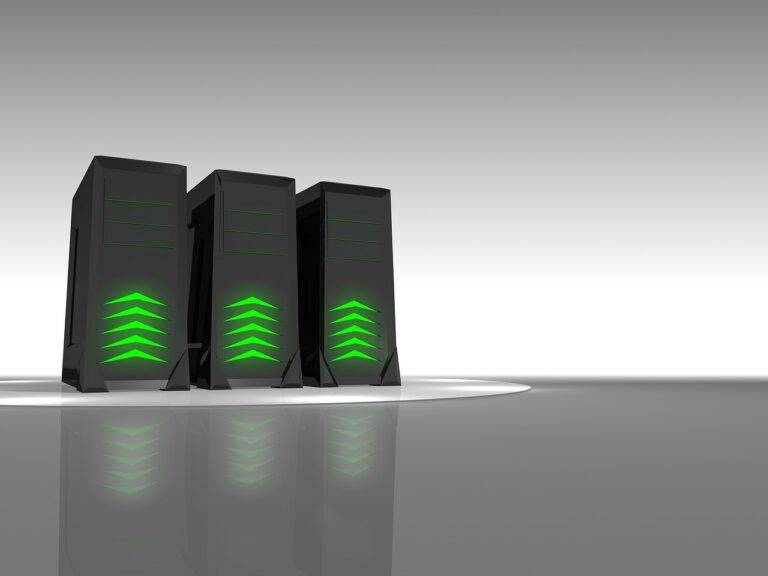The Rise of Quantum Computing in Healthcare Analytics
Quantum computing has opened up new realms of possibilities in the field of healthcare analytics, revolutionizing the way data is processed and analyzed. Its unparalleled computational power enables healthcare professionals to tackle complex problems in a fraction of the time it would take traditional computing methods. With quantum computing, vast amounts of medical data can be analyzed simultaneously, leading to more accurate diagnoses, personalized treatment plans, and advanced drug discovery.
The integration of quantum computing in healthcare analytics has the potential to significantly enhance patient outcomes and streamline healthcare operations. By harnessing the principles of quantum mechanics, researchers can delve deeper into genetic sequencing, optimize treatment algorithms, and predict patient responses with unprecedented precision. As quantum computing continues to evolve, it is poised to reshape the landscape of healthcare analytics, ushering in a new era of data-driven innovation and transformative advancements in patient care.
Understanding Quantum Computing and its Applications in Healthcare
Quantum computing has emerged as a revolutionary technology with the potential to transform the landscape of healthcare analytics. Unlike classical computing, which relies on bits to process information, quantum computing utilizes quantum bits or qubits that can exist in multiple states simultaneously. This capability enables quantum computers to handle complex computations at a speed that far surpasses traditional computers, opening up new possibilities for data analysis and problem-solving in the healthcare sector.
In healthcare, the applications of quantum computing are vast and promising. From speeding up drug discovery processes through molecular simulations to optimizing treatment plans for individual patients based on vast amounts of data, quantum computing has the power to revolutionize personalized medicine. Moreover, the ability of quantum algorithms to efficiently analyze vast datasets can lead to advancements in disease diagnosis, genomics research, and healthcare resource optimization, ultimately improving patient outcomes and revolutionizing the way healthcare analytics is conducted.
Challenges and Opportunities of Implementing Quantum Computing in Healthcare Analytics
Implementing quantum computing in healthcare analytics presents a unique set of challenges and opportunities. One of the main challenges is the complexity of transitioning from traditional computing systems to quantum computing, requiring significant investment in infrastructure and expertise. Additionally, the current lack of widely available quantum computing technology tailored for healthcare applications adds another layer of difficulty in adoption.
However, the opportunities that come with implementing quantum computing in healthcare analytics are vast. Quantum computing has the potential to revolutionize data processing and analysis in healthcare, leading to faster and more accurate diagnoses, personalized treatment plans, and drug discovery. The increased computational power of quantum systems can handle vast amounts of healthcare data more efficiently, opening doors to groundbreaking advancements in the industry.
What is quantum computing and how does it differ from classical computing?
Quantum computing is a type of computing that utilizes quantum-mechanical phenomena, such as superposition and entanglement, to perform operations on data. It differs from classical computing, which uses bits to represent data as either 0 or 1, by using quantum bits, or qubits, which can represent both 0 and 1 simultaneously.
How can quantum computing benefit healthcare analytics?
Quantum computing has the potential to revolutionize healthcare analytics by enabling faster and more efficient data processing, leading to improved diagnosis, treatment, and patient outcomes. It can handle complex algorithms and massive datasets that are beyond the capabilities of classical computers.
What are some challenges of implementing quantum computing in healthcare analytics?
Some challenges of implementing quantum computing in healthcare analytics include the high cost of quantum computers, the need for specialized expertise to develop quantum algorithms, and the limited availability of quantum software and hardware. Additionally, quantum technology is still in its early stages and has yet to be fully optimized for practical use in healthcare.
What opportunities does quantum computing provide for healthcare analytics?
Quantum computing provides opportunities for healthcare analytics in areas such as personalized medicine, drug discovery, genomics, and predictive analytics. It can accelerate the process of analyzing complex biological data, identifying patterns, and making accurate predictions, ultimately leading to more effective treatments and better patient care.





